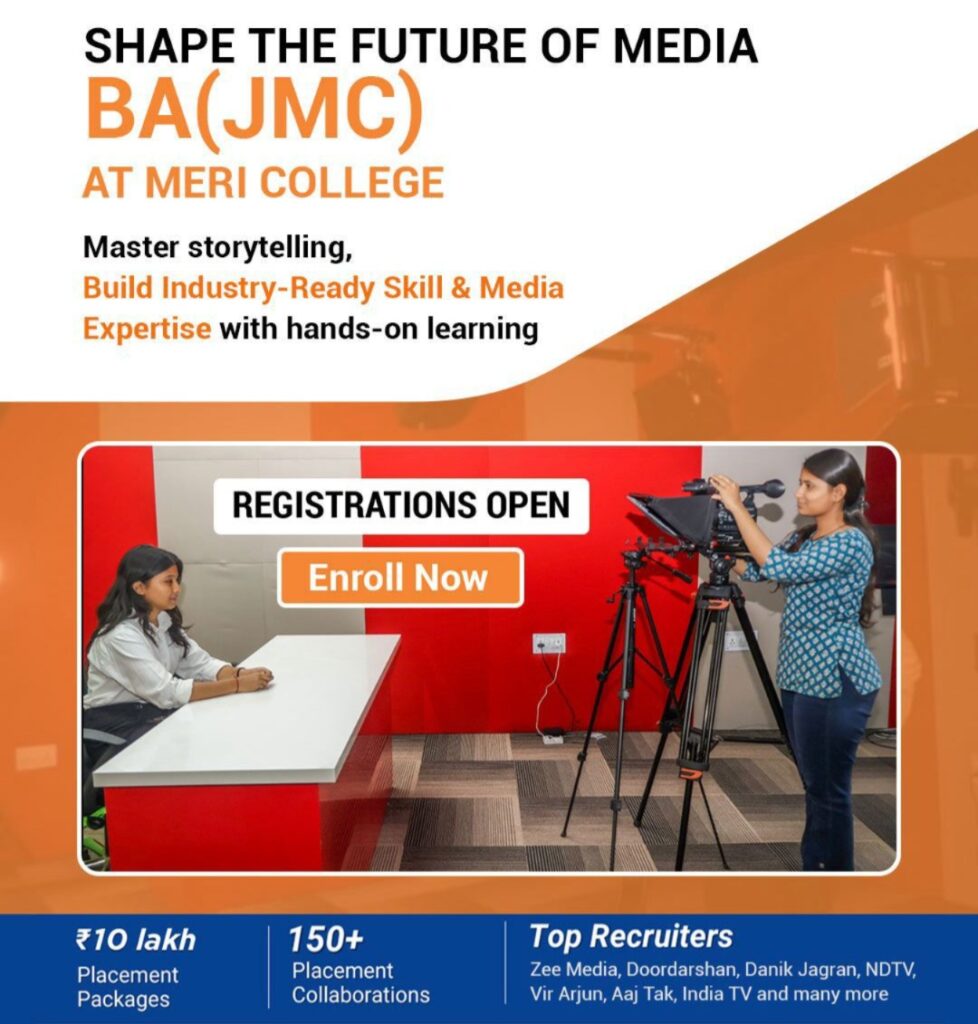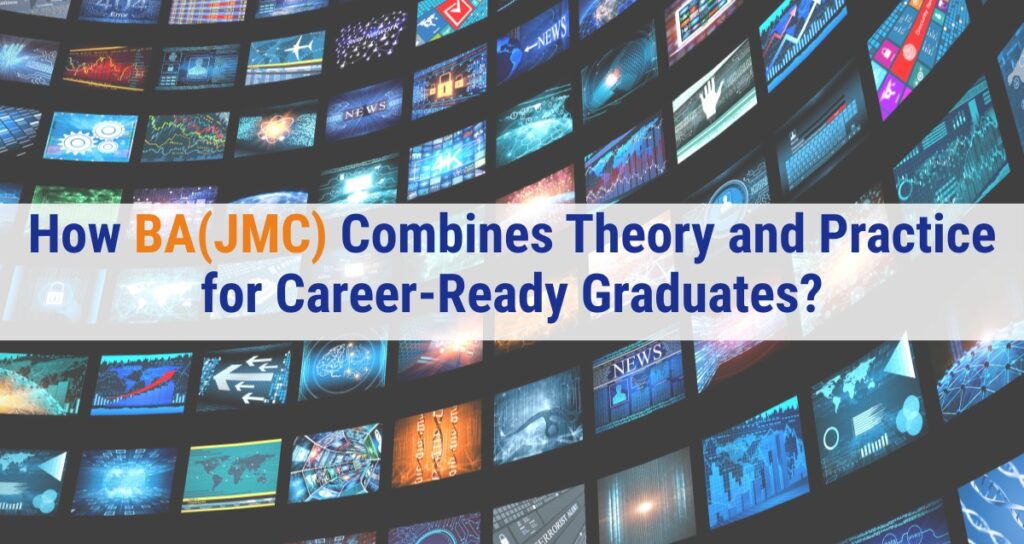In an age where information is currency and communication is power, a degree in journalism and mass communication offers more than academic insight. It prepares students to navigate the fast-paced, highly competitive media world with clarity and purpose. What separates successful professionals in this field is not only what they know, but how well they can apply that knowledge. The best programs understand that theory must meet practice, and practical exposure must reinforce conceptual learning.
A Curriculum Grounded in Relevance
A well-structured BA(JMC) program starts with academic fundamentals. From media laws to communication theories and ethics, students build a strong intellectual foundation. This theoretical grounding is vital for understanding the deeper purpose of journalism, advertising, public relations, and broadcasting. Concepts like audience behavior, semiotics, and communication models give students the tools to analyze, interpret, and influence media narratives effectively.
Practice-Centric Pedagogy
Beyond textbooks, students must learn the language of the newsroom, the demands of a camera-ready shoot, and the protocols of a public relations campaign. Practical training is essential. Modern BA(JMC) programs now include immersive modules where students participate in news writing, television production, and audio-visual editing. One of the leading examples of this approach is Management Education and Research Institute. Recognized as the top BA(JMC) institute in Delhi NCR, it places high emphasis on experiential learning. With access to in-house labs, recording studios, and media production facilities, students get the opportunity to create, critique, and publish their own work.
Industry Integration and Experiential Learning
The media industry evolves rapidly, and classroom instruction must keep pace. Industrial visits and educational trips provide firsthand insight into how agencies, production houses, and digital media firms operate. This industrial immersion enables students to link classroom knowledge with current media practices. The program also includes value-added courses specifically curated for industrial integration, ensuring students remain industry-relevant throughout their academic journey.
Skill Enrichment Beyond the Classroom
Education is incomplete without exposure to activities that cultivate confidence and expression. Students involved in intensive club activities gain experience in leadership, teamwork, and creative thinking. Art-integrated learning introduces visual and cultural elements to enhance storytelling and content creation. Cultural events provide platforms for students to organize, present, and participate in large-scale productions. These experiences are pivotal in shaping versatile communication professionals who are not only knowledgeable but also socially and culturally responsive.
Technology-Driven Learning
Digital infrastructure is central to modern education. Institutions that adopt technological advancements provide students with better learning environments and management systems. ERP and LMS platforms allow for seamless communication between faculty and students, streamlined assessments, and transparent academic tracking. Smart classrooms equipped with digital screens and interactive tools enhance engagement and collaboration. The presence of a research center within the institution encourages students to pursue media research, content analysis, and academic inquiry that supports the development of informed media professionals.
Career Support and Global Orientation
The journey does not end with a degree. What matters equally is how well students are prepared for life after graduation. MERI College exemplifies this placement-ready approach by offering a structured pre-placement drive that includes one-on-one mentoring, mock interviews, and portfolio reviews. Students benefit from higher education assistance, which opens up opportunities for further study in India or abroad. With 30+ international collaborations, the institute offers international exposure through study tours, exchange programs, and global partnerships. A major strength is the legacy of 15,000+ alumni who actively engage with current batches. Their success stories and mentorship provide valuable guidance to final-year students through the PDPS program. Located conveniently near a metro station, MERI College remains accessible for students across Delhi NCR.
Conclusion
The field of journalism and mass communication demands professionals who are not only informed but also adaptable, creative, and technologically adept. A program that effectively integrates theoretical knowledge with practical experiences empowers students to meet industry challenges with confidence. Management Education and Research Institute stands out as the top BA(JMC) institute in Delhi NCR by delivering a curriculum that goes beyond classroom walls. With its focus on simulation-based learning, real-world exposure, global connections, and comprehensive career support, it fosters graduates who are not just qualified but career-ready from day one.

Fill out the form to connect with our BA(JMC) experts today!
Previous Article


